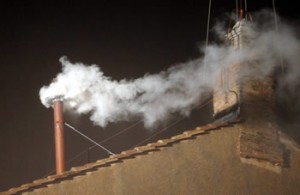 In his pronouncements and demeanor Pope Francis never misses a trick to castigate energy use and development as robbing the poor and making conditions unlivable. It is unscientific cant at best, or manipulative propaganda towards an unholy Marxist state. Cheap and abundant energy including the carbon based variety are saving graces for the poor.
In his pronouncements and demeanor Pope Francis never misses a trick to castigate energy use and development as robbing the poor and making conditions unlivable. It is unscientific cant at best, or manipulative propaganda towards an unholy Marxist state. Cheap and abundant energy including the carbon based variety are saving graces for the poor.
From the National Center for Policy Analysis:
Welfare Implications of Falling Natural Gas Prices
A newly published National Bureau of Economic Research paper uses new estimates of natural gas supply and demand elasticities to estimate the broad welfare and distributional effects of the natural gas supply boom. The paper finds that it generated substantial net economic benefits.
The net economic benefits are attributed to advances in horizontal drilling and hydraulic fracturing have allowed U.S. natural gas producers to profitably extract gas from shale formations previously considered uneconomic.
From 2007 to 2013, production grew by more than 25 percent, leading to a sharp drop in prices. From 2000 to 2010, the average price of natural gas in the United States was $6.81 per thousand cubic feet in 2013 dollars. Since 2011, it has averaged $3.65 per thousand cubic feet.
Falling U.S. natural gas prices generated consumer benefits of $74 billion in 2013 and reduced producer welfare by $26 billion annually. The consumer surplus estimates suggest that lower prices also created benefits of:
$17 billion per year to residential natural gas users.
$11 billion per year to commercial users.
$22 billion per year to industrial users.
$25 billion per year to electric power utilities.
Residents of the West South Central region — Arkansas, Louisiana, Oklahoma, and Texas — benefited most from the price decline because their industrial and electric power sectors use large amounts of natural gas. The estimated benefit in the region was $432 per person per year. Benefits in New England were $190 per person per year.
The results also suggest that low-cost natural gas stimulated manufacturing activity. They find that industries that are highly dependent on natural gas contracted less during the post-2008 economic downturn, and increased rather than decreased employees’ compensation, arguably — though not conclusively — as a result of the favorable shock to natural gas prices that coincided with the economy-wide recession.
Source: Catherine Hausman, Ryan Kellogg, “Welfare Implications of Falling Natural Gas Prices,” National Bureau of Economic Research, April 2015.
Copyright © National Center for Policy Analysis. All rights reserved.
